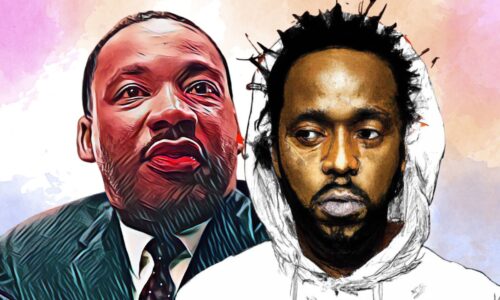[I]t was five years ago today (January 12, 2010), that a deadly 7.0 earthquake rocked the island of Haiti, with an epicenter just 16 miles west of Port-au-Prince, the capital of Haiti.
To make matters worse, another 52 aftershocks equaling about 4.5 on the Richter scale struck the country, causing more chaos, damage and death.
 Anderson* is only 2-days-old and his family lives in a camp in Port-au-Prince because their house was destroyed in the earthquake. His mother Elise* (hidden in shadow) is 17 years old. “This is my first baby. I went to the hospital; I had no problems giving birth, but I am now in pain. I live here with four people and with the baby that makes five! I hope my baby is healthy and stays healthy and that God protects him.” Photo by Riccardo Venturi / Save the Children. |
Over 220,000 people lost their lives on this day, while 250,000 residences were destroyed. Another 30,000 commercial buildings collapsed, or suffered structural damage and a total of 1.5 million people were displaced.
In the days following the earthquake, countries from around the world pledged donations to help with the disaster recovery. Over $13 billion was collected to help towards relief and reconstruction efforts, with the U.S. pouring in $3 billion alone.
Thanks to mass corruption, only 53% of the $3 billion materialized to rebuild Haiti in the two years following the earthquake, according to the Daily Mail. Less than .06% went to charities or non-profits.
To top it all off, just last month, thousands of protestors hit the streets calling for the resignation of Prime Minister Laurent Lamothe and called for new leadership in Haiti. Thanks to politics, elections are being stalled by a dispute between President Michel Martelly and a group of Senators opposed to a proposed electoral law.
Despite the civil unrest, a variety of organizations and individuals remain committed to helping the people of the poorest country in the Western Hemisphere.
The American Red Cross, which collected almost $500 million for its relief efforts, tapped celebrities like Ben Stiller, Wyclef Jean and John Mayer in a fundraising campaign shortly after the earthquake in 2010.
Five years later, The American Red Cross has spent all of the $488 million it collected from the campaign. The organization shelled out $173 million on shelter programs for 132,000 people. According to their statistics, over 388,000 people have received grants, job training and cash-for-work.
Another $98 million went to educate the public about cholera, a disease that did not exist in Haiti until it was introduced by aid workers from Nepal, after human waste was dumped into Haiti’s main river in 2010.
The disease killed 8,000 while over 700,000 more people became ill. The cholera outbreak even triggered a lawsuit filed by various human rights groups, who claimed that the peacekeepers were not properly screened for health-related issues. The lawsuit was dismissed.
 “Where I work, now they beat me. I wake up really early- at 4 a.m. to do house work. I’m the one that does all the work in the house, washing dishes, sweeping, carrying water, mopping … If my dad and mom were alive, I wouldn’t be in this situation. I would be loved and protected.” |
“Throughout the past five years, the American Red Cross has pledged to spend the donations for Haiti wisely and efficiently,” said Gail McGovern, president and CEO of the American Red Cross. “Because of the generosity of the American people, Haitians have reopened or launched new businesses and moved into safer living conditions. Rubble that used to stretch as far as the eye could see has been removed and people have better access to health care and clean water and sanitation.”
Rebuilding the economy, the roads and the physical infrastructure is the easier task, in comparison to the psychological toll the earthquake had on the country.
In fact there are over 45,000 children who lost their parents and siblings who are still in internally displaced person camps (IDPs).
There are over 225,000 children age 5–17, working as child laborers. Some of the children fall victims to sexual exploitation, as well as extreme violence.
“Efforts to rebuild the most affected areas move at a slow place, and the need to support vulnerable children and families remains high. Many of the children and families who survived the earthquake lost everything and experienced severe emotional trauma,” said Lynn Croneberger, CEO of SOS Children’s Villages – USA. Her organization has worked within the island nation for the past 30 years, running health care and education programs in Santo and Cap-Haïtien, as well as Port-au-Prince.
This week, a new 125,000 square-foot medical hospital will be opened in Port-au-Prince to treat up to 300 patients, in hopes of helping the survivors of physical and psychological trauma. The St. Francis de Sales Hospital is a state-of-the-art facility, funded by Catholic Relief Services. The hospital will double as a teaching facility for medical and nursing professionals.
The need in Haiti is astounding, and this new hospital is a vitally important part of rebuilding the community of Port-au-Prince and ensuring that its people can receive the medical care and attention they need,” said Sr. Carol Keehan, DC, President and Chief Executive Officer of the Catholic Health Association.





